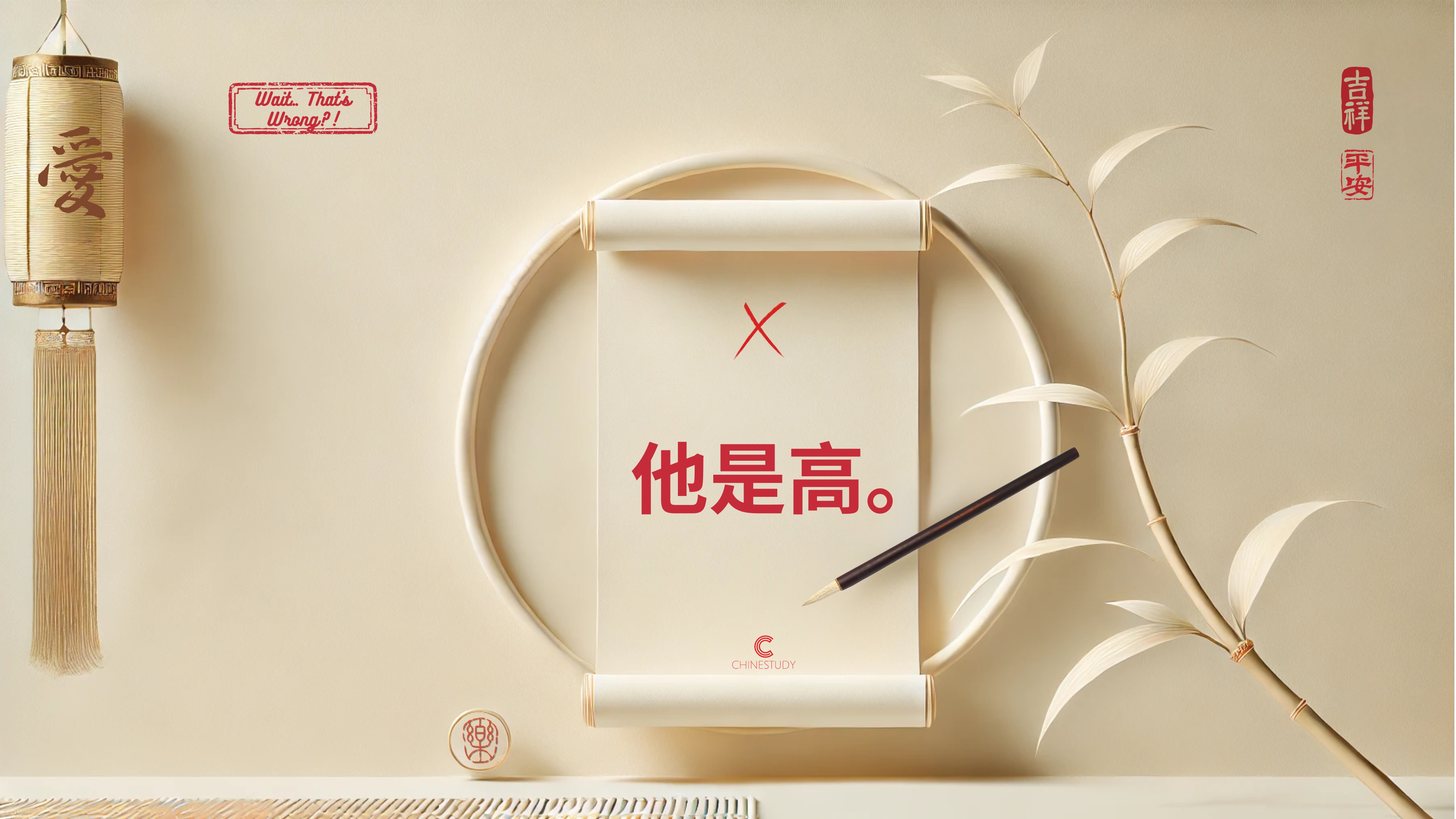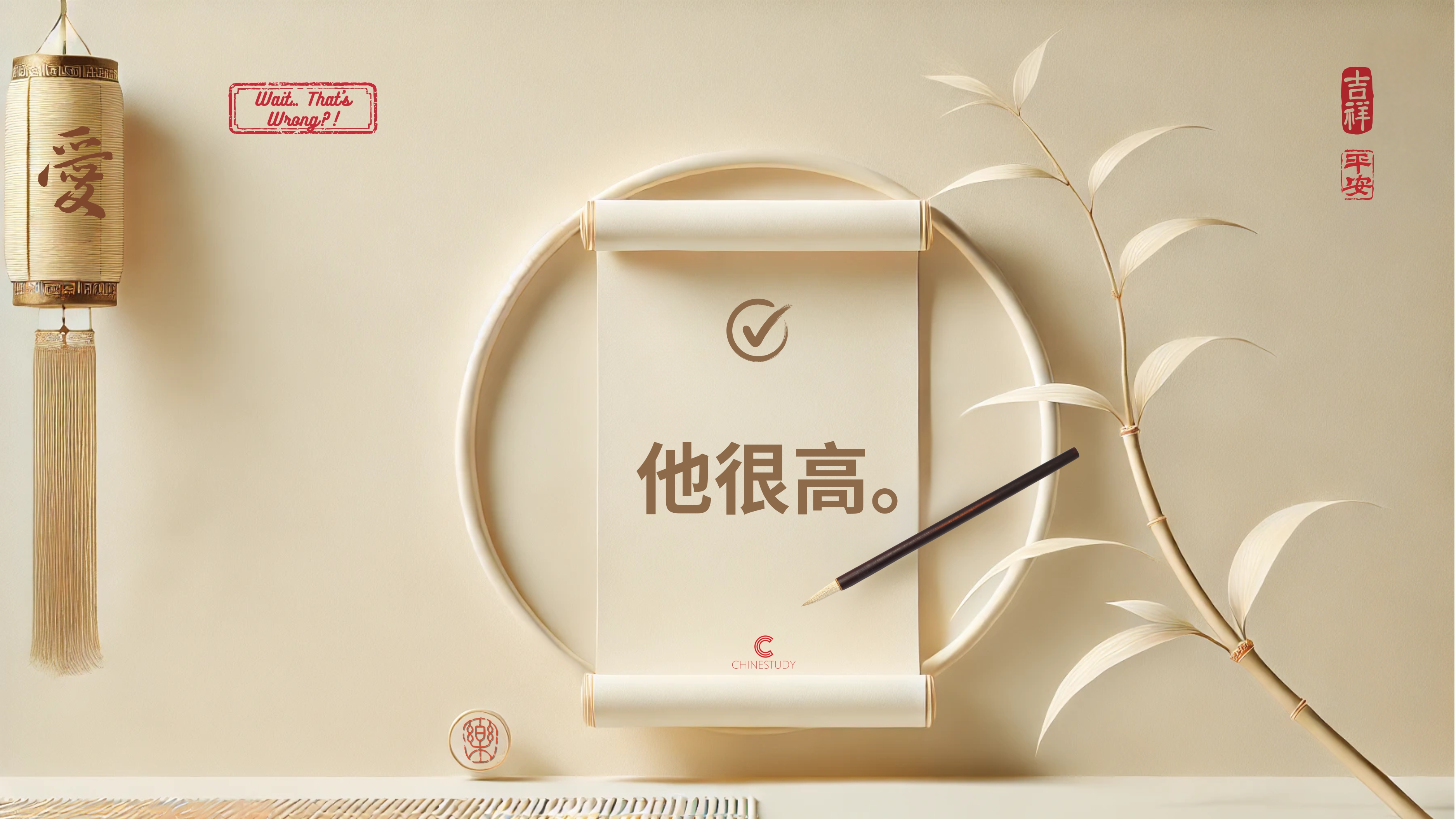😅 他是高 Wait… That’s Wrong?!

If you’ve said something like “他是高” (Tā shì gāo) to mean “He is tall,” you’re not alone!
It looks like a normal sentence… but in Chinese, that’s actually wrong! Let’s fix it.
❌ What’s wrong?
In English, we say “He is tall,” so many learners add 是 (shì) in front of adjectives in Chinese.
But here’s the key:
📌 In Chinese, adjectives can act like verbs!
That means you don’t need 是 (shì) before them.
🛠 Let’s Fix It
Wrong sentence:
❌ 他是高。 Tā shì gāo。
Correct sentence:
✅ 他很高。 (Tā hěn gāo。) – He is tall.

💬 More Examples
✅ 天气很冷。 Tiānqì hěn lěng。
👉🏼 The weather is cold.
✅ 这本书很有意思。 Zhè běn shū hěn yǒuyìsi。
👉🏼 This book is interesting.
🤔 Why Add 很 (hěn)?
You might ask, “If 他高 is correct, why say 他很高?”
Good question!
In Chinese, 很 is often added to make the sentence sound natural. It doesn’t always mean “very” — sometimes it just connects the subject and adjective.
So:
- ⚠️ 他高 – grammatically possible, but sounds strange or overly formal.
- ✅ 他很高 – natural and common!
💡 Easy Tip to Remember
- ❌ Don’t say 是 + adjective in Chinese.
- ✅ Just use the adjective — usually with 很 to sound natural.
🎯 Interactive Practice
Can you fix the wrong sentences below?
1. ❌ 她是漂亮。Tā shì piàoliang。
2. ❌ 这道菜是好吃。Zhè dào cài shì hǎochī。
3. ❌ 你是聪明。Nǐ shì cōngming。
Correct answers:
1. ✅ 她很漂亮。 (Tā hěn piàoliang。) – She is pretty.
2. ✅ 这道菜很好吃。 (Zhè dào cài hěn hǎochī。) – This dish is delicious.
3. ✅ 你很聪明。 (Nǐ hěn cōngming。) – You are smart.
🚀 Final Reminder
- 📌 Adjectives are similar to verbs.
- 📌 No need for 是 — just say the adjective directly.
- 📌 Add 很 for a natural sound!
Happy learning! 😊
Thank you for subscribing!
Have a great day!